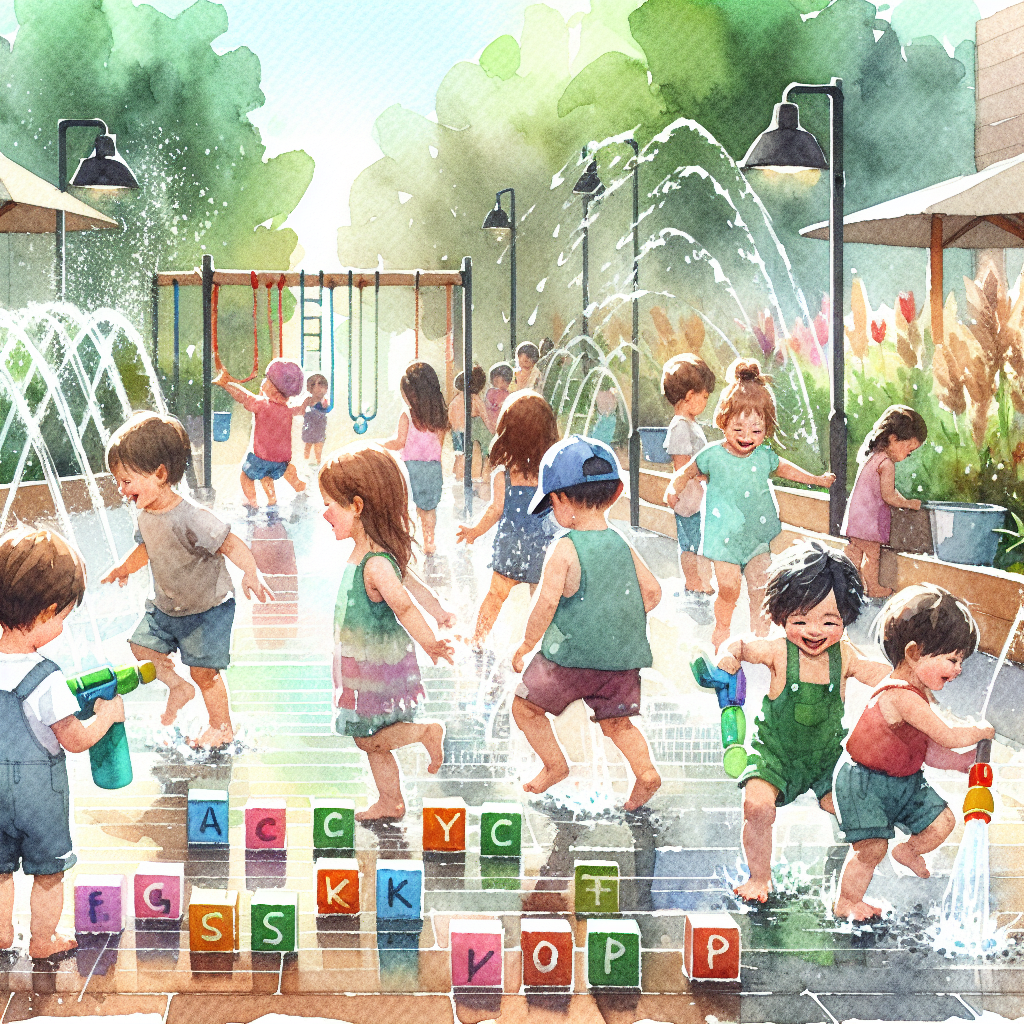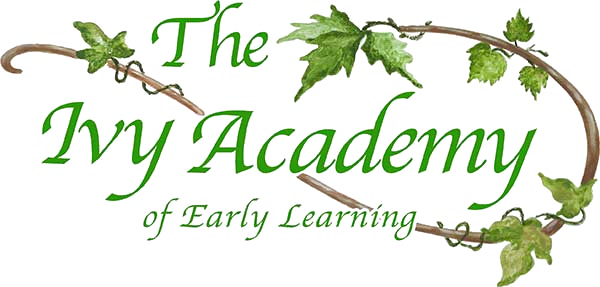Parenting, Preschool Choices, Preschool Insights, School Readiness, STEM Learning
Geneva Summer Splash: Water Activities That Develop Motor Skills

Geneva Summer Splash: Water Activities That Develop Motor Skills
Summer in Geneva is the perfect time for children to dive into water activities that are not only fun but also crucial for developing motor skills. At The Ivy Academy, we recognize the unique benefits of water play and incorporate a variety of aquatic experiences designed to nurture both gross and fine motor development in young children.
Why Water Activities Matter for Motor Skill Development
Water provides a unique environment that supports children’s physical development in ways that land-based activities cannot. The natural properties of water create both resistance and buoyancy, offering children new challenges and sensory experiences.
Children engaged in water play benefit in multiple developmental areas:
- Physical Benefits: Water activities provide resistance and support, allowing children to move freely while building muscle strength, coordination, balance, and endurance.
- Cognitive & Sensory Growth: Engaging with water stimulates sensory exploration and cognitive skills as children experiment with cause-and-effect relationships, volume concepts, and principles of buoyancy through pouring, splashing, and observing how objects behave in water.
- Social & Communication Skills: Group water play encourages communication, cooperation, turn-taking, and new vocabulary acquisition, as supported by early childhood research.
Science-Backed Evidence
Recent research confirms what early childhood educators have long observed: water activities significantly impact motor development. A 2024 study published on PubMed found that infants aged 3–12 months who participated in regular water activities showed statistically significant improvements in motor development compared to those who did not engage in such activities.
The study used standardized assessments (AIMS & EMQ) to measure progress, concluding that “the water environment has the potential to support the motor development of infants aged 3–12 months” (PubMed, 2024). While this specific research focused on infants, developmental experts widely accept that these principles extend to toddlers and preschoolers, with benefits scaling appropriately as children grow.
According to a 2023 review in the Journal of Pediatric Medicine, “Water-based activities provide unique sensorimotor input that supports the development of proprioception, vestibular processing, and coordination in children across early developmental stages” (PMC, 2023).
Types of Water Activities That Boost Motor Skills
Fine Motor Skill Builders
At The Ivy Academy, we design water activities that specifically target the small muscles in children’s hands and fingers:
- Scooping Alphabet Letters from Water: Using spoons, nets, or tongs to retrieve floating letters strengthens hand-eye coordination while reinforcing letter recognition.
- Transferring Colored Water with Eyedroppers: This precision task enhances pincer grasp and prepares children for future writing skills.
- Spraying Plants with Spray Bottles: The repetitive squeezing motion builds hand strength that transfers to other fine motor tasks.
- Squeezing Wet Sponges and Pom-Poms: This tactile activity improves grip strength while providing sensory input that helps children regulate their bodies.
Gross Motor Skill Builders
Our water play also focuses on developing large muscle groups essential for overall physical development:
- Running Through Sprinklers or Splash Pads: Encourages large muscle movement—jumping over streams or dodging sprays develops agility, spatial awareness, and coordination.
- Swimming Lessons: Swimming fundamentals like kicking legs or pulling arms through water build overall body coordination and core strength that benefits all physical activities.
- Climbing Pool Walls/Slides at Local Facilities: Climbing up slides or out of pools engages upper body muscles and builds confidence in navigating different environments.
- Carrying and Pouring Water Buckets: This activity strengthens arm and core muscles while teaching weight distribution and balance.
- Kicking in Shallow Water: Provides resistance training for leg muscles while supporting the child’s weight.
Social Play & Language Development
Water play creates natural opportunities for language acquisition and social growth. Children learn new words (“splash,” “float,” “pour,” “buoyant”) during guided group play. They practice sharing equipment like buckets or floaties—key social-emotional milestones for preschoolers.
A 2022 study in early childhood education found that cooperative water play specifically increases prosocial behaviors and verbal communication among preschoolers by creating natural scenarios for problem-solving and negotiation (Outdoor Playbook, 2022).
At The Ivy Academy, our teachers facilitate these interactions, helping children develop communication skills while having fun in the water.
Local Opportunities: Geneva’s Aquatic Playgrounds
Geneva, Illinois offers excellent family-friendly aquatic venues that we utilize in our programming:
- Sunset Pool: Features spray grounds, aquatic playgrounds, climbing walls, and zero-depth entry areas perfect for young children. The facility includes thoughtfully designed play zones that naturally encourage developmental progression from simple to more complex water skills.
- Mill Creek Pool: Offers slides, sprinkling flowers, sprayers, and water cannons that delight children while building their confidence in water. Their shallow areas are specifically designed with tactile features that stimulate sensory development.
According to the Geneva Park District’s 2025 Spring Playbook, all facilities maintain rigorous safety protocols including trained lifeguards, regular water quality testing, and designated shallow areas perfect for developing water confidence in young children.
These facilities are designed with safety features such as lifeguard supervision and shallow zones perfect for preschoolers’ developmental needs. The Ivy Academy regularly organizes supervised visits so students can benefit from these wonderful community resources.
The Ivy Academy’s Approach to Aquatic Development
Our approach to water activities is thoughtfully integrated into our curriculum in age-appropriate ways:
- Toddlers (2-3 years): We introduce sensory water tables with cups, funnels, and water wheels to develop basic pouring and filling concepts. This age group explores basic cause-and-effect relationships through water play.
- Preschoolers (3-4 years): Activities progress to more complex hand-eye coordination tasks like using turkey basters to transfer water between containers. We introduce basic scientific concepts like sink vs. float and volume measurement.
- Pre-K (4-5 years): Children engage in collaborative water projects that incorporate science concepts like floating, sinking, absorption, and water conservation. Group activities build both motor skills and collaborative problem-solving abilities.
Safety is always our priority. Our teachers are trained in water safety protocols, and we maintain appropriate teacher-to-student ratios during all water activities.
Quick Tips: How Parents Can Support At Home
You don’t need a pool to reinforce these important motor skills at home! Try these simple ideas:
- Set up a plastic tub outside filled with toys, cups, and sponges—let your child pour, squeeze, and explore. Adding food coloring to water in clear containers introduces early science concepts.
- Use spray bottles together while watering plants; challenge your child to aim at specific targets to build precision and control.
- Encourage bubble-blowing contests using wands or straws—a great way to build oral-motor control and breath regulation.
- Create an ice excavation activity: freeze small toys in ice and let your child use eyedroppers with warm water to “rescue” them—combining fine motor practice with early science principles.
- Set up a non-slip surface near the bathtub with towels to practice stepping in/out safely, building gross motor confidence around water.
Safety Tip: Always supervise young children around any amount of water, no matter how shallow. Use non-slip mats around home water play areas, keep electronic devices away from water activities, and teach basic water safety rules even during casual play.
Conclusion
Water play is more than just summer fun—it’s an essential part of early childhood development. By enrolling your child at The Ivy Academy this summer in Geneva, you’re giving them access to expertly crafted experiences proven by science to boost their physical abilities while making joyful memories.
Our thoughtfully designed water activities help children develop crucial motor skills that form the foundation for academic success. As children splash, pour, and play, they’re actually building the neural connections and physical abilities they’ll need for writing, sports, and countless other future activities.
For more information about our summer programs at our Geneva location or to schedule a tour, contact us today at 630-402-0385 or visit Schedule a Tour (Geneva).
